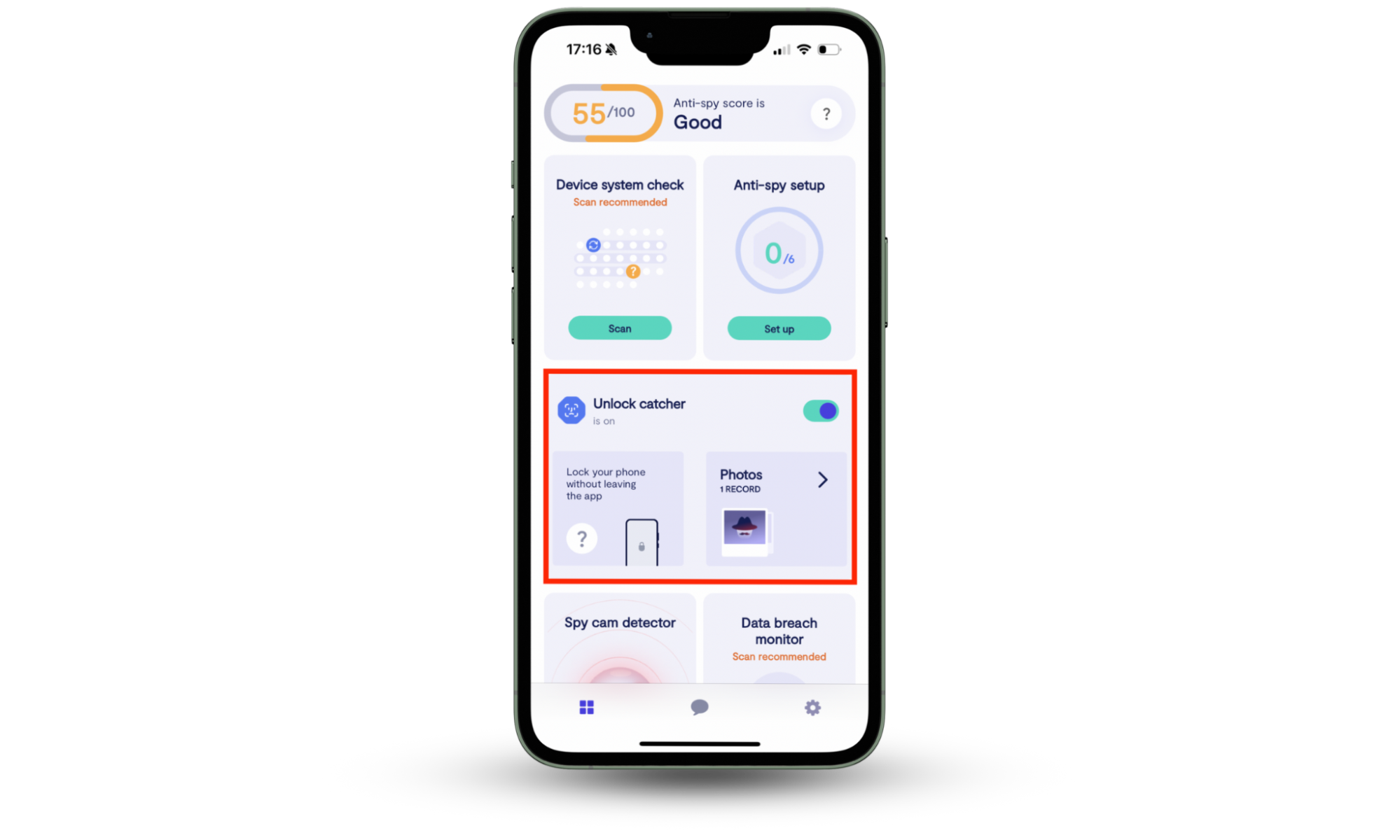Table of contents
- What does controlling husband mean
- Characteristics of controlling husbands
- How to deal with controlling husbands
- 1. Find out reasons for his controlling behavior
- 2. Stay calm
- 3. Communicate openly with him
- 4. Set clear boundaries
- 5. Don’t be afraid to ask for help
- 6. Try couples therapy
- 7. Stay close to friends and family
- 8. Stop giving him power over you
- 9. Be brave enough to leave
- 10. Seek legal advice
- 11. Achieve financial independence
- 12. Prioritize your mental health
- Conclusion
What does controlling husband mean
If your husband is controlling, he might manage your daily routine, cut you off from friends and family, dictate your spending, or tell you what you should wear. He might claim he does these things because he loves you, or wants to protect you—but controlling behavior is abuse.
He might get angry if you try to stand up for yourself. Alternatively, he might get upset, cry, or threaten to hurt himself.
A controlling partner often tries to micromanage and monitor what their victim is doing and saying. He might track your location, listen in on your conversations, or spy on your phone. If he has access to your phone, he can read your messages, see your emails, and check the websites you’ve visited. This could have scary consequences, especially if you’re trying to escape your relationship—a husband spying on you might get violent if he believes you’re trying to leave.
If you’re worried that an abusive spouse is spying on you, Clario Anti Spy’s Unlock catcher can help. The app discreetly takes a photo of anyone who unlocks your phone, so you can tell if your husband is monitoring your device.
A customer recently contacted the team at Clario Anti Spy because she was worried about her husband’s controlling behavior. She was afraid he was accessing her phone without her consent—but her circumstances meant that she couldn’t change her passcode. A Clario expert recommended that she use Clario Anti Spy’s Unlock catcher. This way, she could discreetly check whether her husband was unlocking her phone, without alerting him to her suspicions.
How to check if your husband is checking your phone:
- Download Clario Anti Spy and set up a subscription.
- In the app, enable Unlock catcher. Lock your phone as normal.
- When you return to your phone, check the Photos tab in Clario Anti Spy. Are there any photos of your husband? If so, he’s been unlocking your phone to spy on you.

Characteristics of controlling husbands
If your husband is controlling, he might seem jealous or paranoid, accusing you of cheating or other wrongdoing. He might try to isolate you from friends or family, or threaten violence or self-harm. A controlling husband can destroy your self-esteem and make you feel insecure and anxious.
Characteristics of a controlling husband include:
- Jealousy, paranoia, and anxiety
- Making unreasonable demands and threats
- Trying to isolate you
- Guilt-tripping you
- Making you feel insecure and anxious
He might show jealousy or paranoia by constantly asking about your plans or checking on your location. Maybe he’s put a tracker in your car, checks your bank statements, or accuses you of infidelity. He might check your devices to see what you’ve been doing online—find out how to tell if your spouse is spying on your phone.
A controlling husband might also be demanding and threatening. He might threaten violence or tell you that he’s planning to hurt himself. This manipulative behavior might prevent you from confronting him or leaving the marriage.
He could try to isolate you. He might want you to stay away from family and friends, especially if he’s worried that they’ll encourage you to leave him.
Some emotionally abusive partners guilt-trip their victims. He might call you selfish, refuse to talk, or withhold affection to make you feel guilty for going out alone, spending money, or having your own views.
Your husband’s bullying behavior will probably make you feel insecure and anxious. You may feel like you can’t make your own decisions.
Often, this anger and controlling behavior doesn’t appear at the start of a relationship. You might think that your marriage is equal and loving at first. Your husband’s behavior might change when you get married, when it’s harder for you to leave him.
How to deal with controlling husbands
To deal with a controlling husband, try not to make him angry. Find out why he’s doing this, stay calm, and communicate your boundaries to him—if it’s safe to do so. Consider trying couples therapy. Stay close to friends and family, so you have a support system around you. Most importantly, you should make a plan to leave the abusive marriage. Talk to friends and family about your husband’s controlling behavior, seek legal advice, and save some money to escape.
If you’re in immediate danger from your controlling husband, call emergency services now.
1. Find out reasons for his controlling behavior
If your husband is controlling, you might be able to find out why. Do you notice any patterns in his behavior?
Your husband might not mean to be abusive. He might have had controlling parents, and it could be the only way he knows how to behave in a relationship. Maybe he’s dealing with anxiety or depression, and he only feels safe around you. He could have valid worries about your safety—for example, if you can’t swim and he only tries to micromanage you when you’re around water.
On the other hand, your husband might simply have a dominating, controlling personality. He might enjoy seeing you fear him and the effects he gets when he accuses you of wrongdoing.
Whatever the reason, if your husband verbally abuses you, threatens violence, or tries to make you feel insecure, he’s in the wrong. You deserve to be safe.
2. Stay calm
When your husband is aggressive or condescending, it can be hard to stay calm. However, arguing back might provoke him.
If your partner shouts at you or tries to make decisions for you, try not to get angry or visibly upset. A controlling husband may become violent when confronted, and it may be safer to stay quiet or walk away.
3. Communicate openly with him
If it’s safe, talk about your husband’s controlling behavior. You might be able to start a discussion about how it affects you, and how you’d like him to act in the future.
How to talk to your partner about his behavior:
- Choose a time when you’re both calm—don’t try to have this conversation in the heat of the moment when you’re angry or he’s aggressive.
- Talk about how his behavior affects you and makes you feel.
- Have the conversation in a safe place. If you’re worried that your partner might freak out and threaten violence, maybe you should have the discussion in public. Alternatively, if he’s likely to get emotional, consider whether you’d prefer to talk privately.
- Think about your goals for the conversation—do you want to ask about his childhood experiences, set specific boundaries, or encourage him to go to therapy?
- Have an escape plan for after the conversation. If your partner gets angry, do you have a person to call for help?
Before you plan this discussion, consider how your husband will react. He might dismiss your concerns and refuse to talk about the problem. Alternatively, some men will get aggressive when confronted.
If you’re in danger, call the emergency services immediately.
4. Set clear boundaries
When you discuss your husband’s controlling behavior, set boundaries. Explain the behavior you will no longer tolerate, and outline the consequences clearly.
Examples of boundaries might include:
- “I’m not comfortable being yelled at. I’ll step away if the conversation becomes aggressive.”
- “If you raise your voice or insult me, I’ll pause the discussion until we can both talk calmly.”
- “It’s important to me that we both feel safe when we disagree. I’ll take space if I start feeling unsafe.”
Remember, a controlling partner may become angry or upset when confronted. If you’re afraid that your husband will get violent, make an escape plan.
If you don’t think your husband will respect your boundaries, consider leaving the relationship.
5. Don’t be afraid to ask for help
It can be difficult to talk to people about relationship problems. Maybe you’re worried that they’ll change their opinion of your husband or be critical of you.
However, if you’re unhappy, it’s important to talk to friends and family. In most cases, they’ll want to help you—if the situation were reversed, think how you’d feel knowing a friend was struggling.
You may need emotional support from friends and family, or you might need more practical help. For example, if your husband controls your finances, you may need to ask your family for money or resources.
6. Try couples therapy
Do you believe that your husband can change his behavior? If so, you could try couples therapy. A good counselor can help you both communicate, set boundaries, and discuss past issues.
However, if your partner is abusive or a narcissist, it’s not recommended to go to couples therapy. Therapy can make an abusive relationship more dangerous. Your husband might feel humiliated and take those feelings out on you. He might use your comments or confessions against you to bully you or exert more control.
7. Stay close to friends and family
If your husband is controlling what you do and who you see, he might try to keep you away from loved ones. When you’re isolated, you don’t have people to point out his crazy behavior, and you don’t have a support system to help you.
However, it’s important to keep your connections with friends and relatives. You need people around you who encourage you and don’t try to control you. If you end up divorcing your controlling husband, you’re going to need their support.
8. Stop giving him power over you
Try to take control of your own life. Your husband might want to dominate your decisions, relationships, and career, but you have power too.
How to have power over your own life:
- If you’re financially dependent on your husband, try to find a job so that you have some money and space of your own.
- Spend time with your own friends and family. Create a network of people you can go to for support.
- Celebrate your own accomplishments—if you get a promotion or achieve a big goal, tell people!
- Follow through with any ultimatums you set for your husband.
- If his behavior continues to be unpleasant, make an escape plan.
9. Be brave enough to leave
Choosing to escape an abusive relationship can be difficult. You may still love your husband, or perhaps you’re afraid of what he’d do if you left him. You might depend on him for money or worry about your children’s happiness if you divorced.
However, if your husband’s controlling behavior doesn’t stop, and you’re unhappy or scared in your relationship, leaving is the right choice.
How to get help with leaving an abusive relationship:
- Ask friends and family for support.
- Contact a domestic violence organization, such as the National Domestic Violence Hotline. They can offer advice about housing, finances, and even legal services.
- If you’re worried about your safety, call local law enforcement.
Leaving an abusive relationship can be dangerous. Some controlling husbands will get violent when they find out you’re planning to leave. Your spouse spying on your computer could come across websites you’ve visited. Make sure you delete your browsing history, or use devices he can’t access.
10. Seek legal advice
If you’ve decided to escape, talk to a local lawyer or attorney. They can help you understand your rights, especially in areas like finances, property, and custody of your children.
In cases where a husband is watching his wife, stalking her, or becoming violent, a lawyer can also offer advice about taking out a restraining order. Getting legal advice could literally save your life.
You might be concerned about the cost of talking to a lawyer, but try not to worry. Lots of domestic violence organizations will have recommendations for free or low-cost legal services.
11. Achieve financial independence
Your husband might try to restrict your access to money. However, it’s important to have your own savings, if possible. Money can open up possibilities for you—for example, if you’re planning to leave the relationship, you’ll need money to make a new start.
If you don’t currently work, finding a job should be a priority. If you’re comfortable talking to friends and family, they may be able to lend you money. Set up a new bank account that your husband can’t access, and begin to save some money.
12. Prioritize your mental health
It’s important to take care of yourself. Your husband’s controlling behavior can impact badly on your mental health badly, but you deserve to feel good.
Take time for hobbies you enjoy, and spend time with friends and family who make you feel happy. Avoid negative people, and listen to your gut if you notice warning signs in new friends or partners. Consider going to therapy—a good therapist can help you process everything you’ve experienced and move forward.
Conclusion
If your husband is controlling, it can be difficult to cope. He might spy on you, criticize you, isolate you from loved ones, or guilt-trip you if you make your own decisions.
To deal with a controlling husband, stay calm and communicate with him if possible. If it’s safe to do so, set boundaries—or consider going to therapy together. Talk to your friends and family, and make plans to leave.
When you’re dealing with a controlling partner or planning to escape domestic violence, be careful about your devices. He might be spying on your phone and could find out about your plans. Use Clario Anti Spy’s Unlock catcher to find out whether he’s checking your phone.


